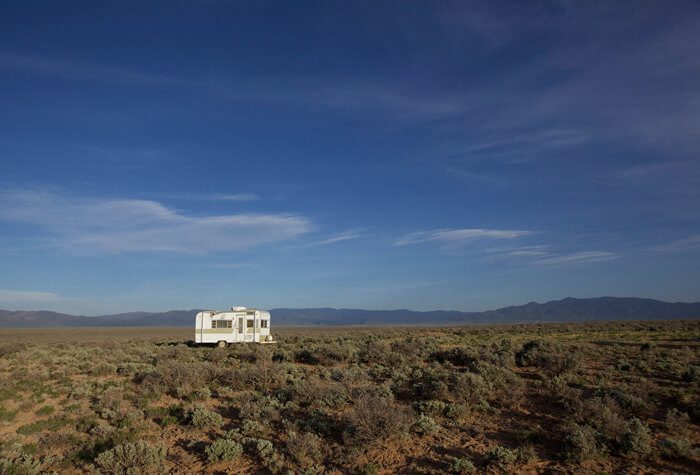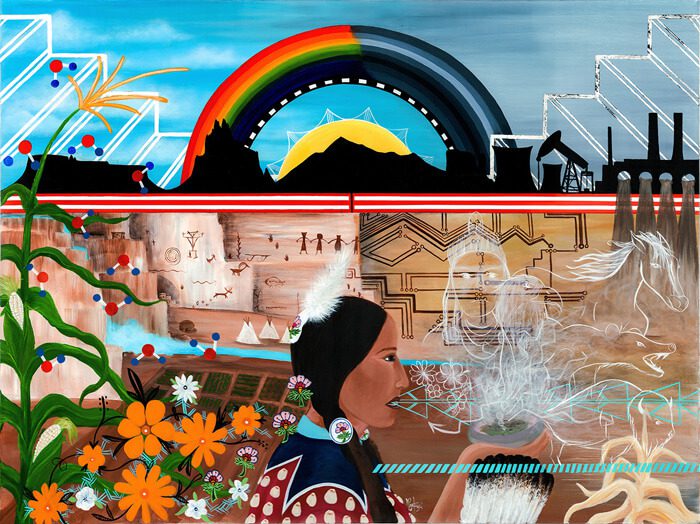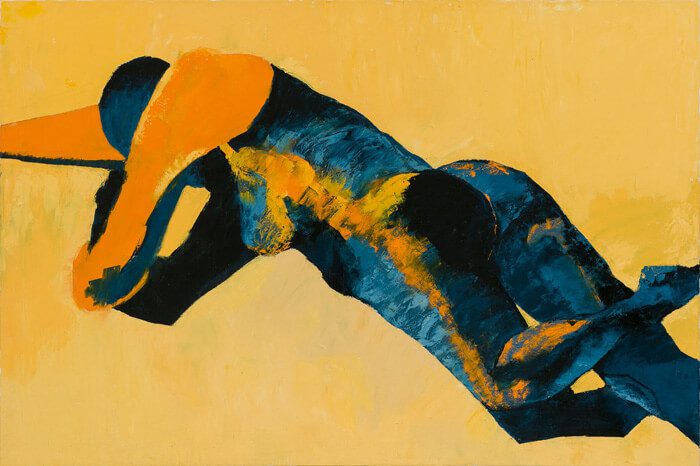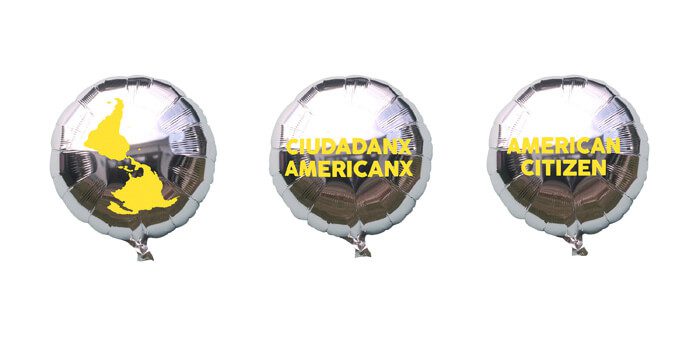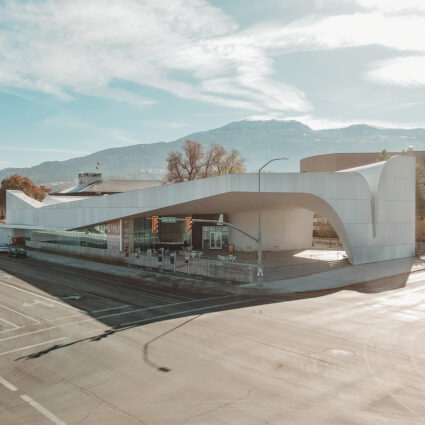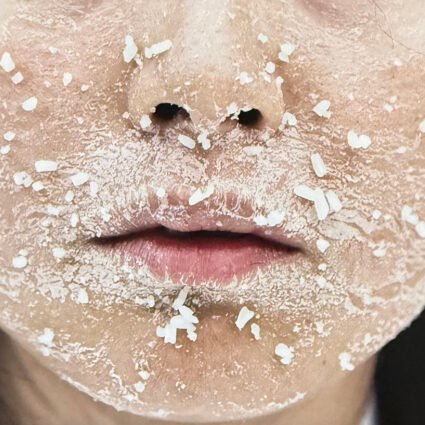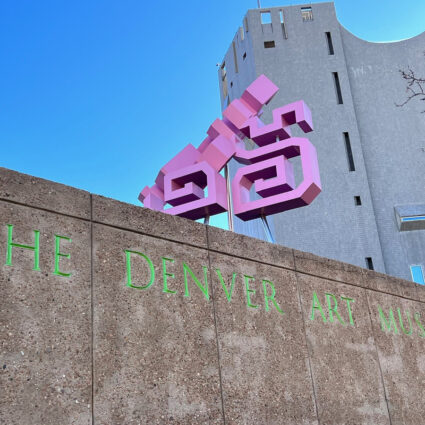Desierto Mountain Time, a constellation of contemporary arts organizations in the Southwest United States and northern Mexico, launches an ambitious series of exhibitions, artist talks, and a podcast series.
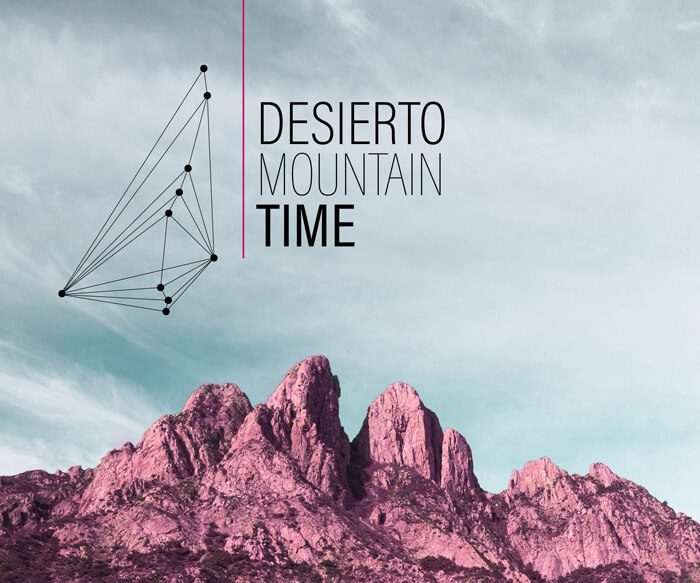
ALBUQUERQUE, NM—You may have seen the advertisements for Desierto Mountain Time, whether it’s the full-color, thirty-two-page program or announcements for regional exhibitions tied to the contemporary art moment.
“The question that everybody gets when we’re talking about Desierto Mountain Time is, ‘What the hell is that? Is it a festival? What is it?’ The true answer is we don’t really know,” says León De la Rosa-Carrillo, an artist, professor of art at Universidad Autónoma de Ciudad Juárez, and one of the Desierto Mountain Time project partners in Ciudad Juárez, Mexico. “It’s more like a conversation than anything else, and this weird collaboration.”
Desierto (which translates to desert) Mountain Time, which formed during the summer lockdown of 2020, is currently a partnership of and conversation between thirteen arts organizations in five Southwest states and Mexico. Last month, the collaboration launched an ambitious series of public programming, scheduled to run through May 2022, that includes an exhibition that explores the African diaspora in the Southwest and a recently completed cultural celebration in Placita de Otero, about a ninety-minute drive from downtown Juárez.
Desierto Mountain Time, coordinated by 516 Arts in Albuquerque and led by partners such as The Fund for Ethical Practices of Transborder Art in Ciudad Juárez and El Paso, Texas and various arts organizations in Roswell, New Mexico, also features virtual and in-person conversations with activists, curators, and educators as well as a podcast series.
During last summer’s quarantine, many of the same partners from Species in Peril Along the Rio Grande—a 2019 exhibition, public program series, and regional collaboration organized by 516 Arts that focused on the Rio Grande watershed from Colorado to northern Mexico—started talking online about forming a collaborative. The group eventually expanded and now includes the Museum of Contemporary Art Tucson in Arizona and Harwood Museum of Art in Taos, New Mexico.
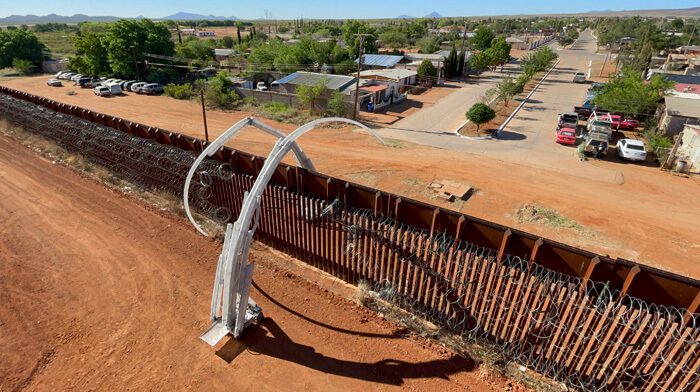
“We are very persistently focusing on the U.S.-Mexico border and the situation for artists on either side of the border,” says 516 Arts executive director Suzanne Sbarge. She adds that the group is consistently cognizant of “the idea of cultural exchange, not only across the international border, but across the borders of our states in the Southwest region.”
On October 16, 2021, 516 Arts launched the Desierto Mountain Time-adjacent exhibition Counter Mapping (scheduled to hang through January 22, 2022), a group show of map-related pieces that confront Westernized mapping methods. This month, related project exhibitions have or will open at the Anderson Museum of Contemporary Art in Roswell, Museo de Arte de Ciudad Juárez, Colorado Springs Fine Arts Center at Coloradao College, MOCA Tucson, and the Harwood Museum.
Last month, the Rubin Center for the Visual Arts at the University of Texas at El Paso unveiled Chico Macmurtrie: Border Crossers, a performance and community participatory project that involves inflatable robotic sculptures, which challenge the ideas of borders. The cross-border performance and an accompanying exhibition are scheduled to take place through December 10, 2021.
From January 21 through March 5, 2022, the New Mexico State University Art Museum in Las Cruces hosts Four Sites of Return: Ritual, Remembrance, Reparation and Reclamation by New Mexico artist Nikesha Breeze. The exhibition “surfaces the collective trauma, histories, rituals, and healing of the African diaspora in the Southwest” and connects it to Blackdom, New Mexico, the state’s first all-Black community that was located approximately twenty miles south of Roswell in the early 1900s.
Desierto Mountain Time also includes talks. “Connecting the Dots,” scheduled to take place virtually at 6 pm MST Thursday, October 28, is a kickoff event for the project and will feature a moderated conversation between Sbarge, Rosa-Carrillo, Eduardo Díaz of the Smithsonian Latino Center and the National Museum of the American Latino, Kerry Doyle of the Rubin Center, and Idris Goodwin of the Colorado Springs Fine Arts Center. An in-person conversation between Breeze, Marie Alarcón, and Nansi Guevara is scheduled to take place from 4 to 6 pm Saturday, February 19, 2022 at the Santa Fe Art Institute.
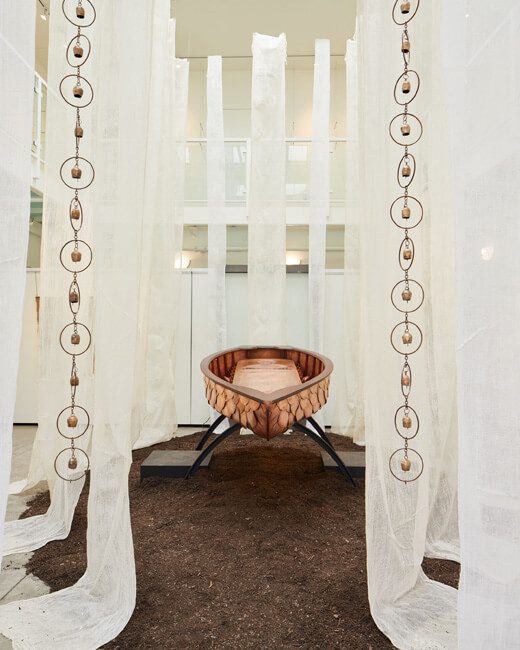
In addition, the Santa Fe Art Institute’s Tilt podcast, which releases every fourth Friday of the month, will air a series called “Shifting Perspectives on Complex Issues” that highlights “diverse communities, creative practitioners, and culture bearers” from New Mexico.
Desierto Mountain Time organizers say that the collaboration and conversations will continue far beyond the May 2022 conclusion of the event series.
“We put out this publication and we’re doing all these art shows by ourselves,” says Rosa-Carrillo, “but we also want the collaboration to come alive and feel alive for others.”
For more information on Desierto Mountain Time, see desiertomountaintime.org.
